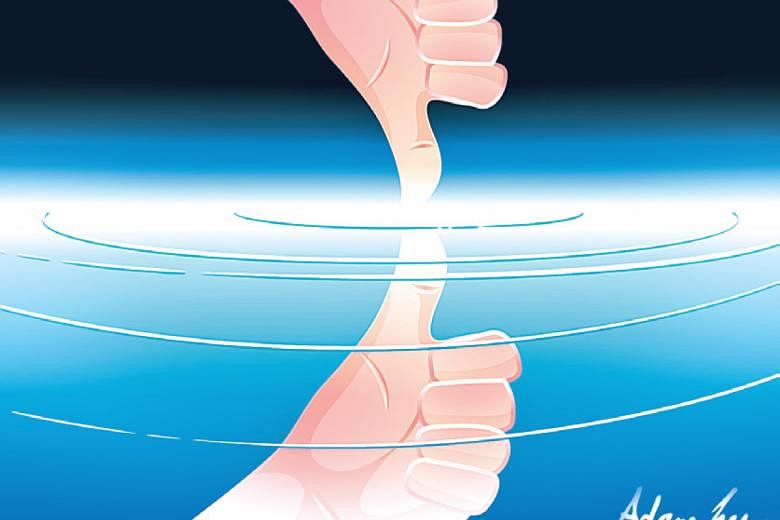We were trimming our Christmas tree on Tuesday night when the live finale of reality singing contest The Voice started on TV. As the girls and I flocked to sit in front of the box, the husband beat a hasty retreat, wondering out loud: "What is so interesting about that show?"
I don't know, why did the Romans like to watch gladiators fight to the death?
Anyway, he went to do something more edifying, like trawl real news sites for the latest updates on the United States President-elect, while the women of the household made predictions of who would win the competition.
My children were rooting for We (pronounced Way) McDonald, a prodigiously talented teenager who speaks like she is on helium, which merely makes her rich and deep singing voice all the more amazing.
But I had a feeling, based on the previous 10 shows, that the winner would be Sundance Head, a white male country singer with a disposition like his name and a voice made for rock 'n' roll.
As we settled down, one of the children was reminded of the night in November we had done just this to watch the presidential election results. "But that was worse," she said. "That was the worst night ever."

In Tuesday's far less important but equally tight contest, McDonald finished third out of four finalists, and Head triumphed.
Like that distressing race for the White House, a deserving candidate was left out in the cold. Unlike that race, the winner of The Voice at least had the chops to deserve the advantage (we thought) given to him by his gender and ethnicity.
Still, it was yet another sobering lesson for the kids that you can work your butt off at something only to fall short at the end because someone else was better or had something you didn't.
As parents, we tell our kids, as we were told by our parents, to work hard because nothing worth having comes by easily. You must apply yourself if you want to reap the rewards.
But the truth is that hard work doesn't always pay - at least not always in the way we want. This is especially in a popularity contest such as The Voice - and one might add, the presidential election - where you have no control over other people.
Despite Hillary Clinton's superior character and platform, her rival won, because of a clever strategy playing the Electoral College, helped by a low voter turnout.
We are still processing the outcome and hoping against hope that it might actually reverse itself, if enough electors go against the choice of their states.
Alas, that's just magical thinking and reality intrudes. In contests such as elections - or job seeking and applications to competitive schools -it is best to maintain a sensible perspective that you cannot guarantee the outcome.
This is particularly relevant now, as thousands of Singapore children ponder their fates, while in my house, our high-school senior is embroiled in applying to universities.
At the start of the summer, when she wasn't chosen for something she had wanted, she said, mournfully: "I guess I had better start getting used to rejection."
I probably responded with something not terribly comforting, like, not everything will be a rejection. But in truth, managing one's expectations is a good skill to cultivate.
Most of us do not have the self-belief required to keep going no matter what anyone says, unless one is driven in the way that a genius such as Vincent van Gogh was driven.
For us mere mortals, a healthy dose of pragmatism might well prevent any lasting damage done by a painful "no" vote.
No one wants to put one's heart and soul into something, only to be told it is not good enough.
But do we then stop believing in working hard? Or do we re-frame what the payout is?
I'm inclined to side with Bob Dylan (another modern-day genius), who defined what it's about in his speech to the Nobel committee.
His Nobel Prize for literature had divided critics, many of whom bristled at the thought of song lyrics being considered literature.
In his speech, given on his behalf by the US Ambassador to Sweden Azita Raji, Dylan said Shakespeare probably never asked himself if he was writing "literature" while occupied with workaday considerations like hiring actors and worrying about funding.
Dylan said: "I too am often occupied with the pursuit of my creative endeavours and dealing with all aspects of life's mundane matters. 'Who are the best musicians for these songs?' 'Am I recording in the right studio?' 'Is this song in the right key?' Some things never change, even in 400 years.
"Not once have I ever had the time to ask myself, 'Are my songs literature?'"
In those genial words is a profound truth: The work is its own reason for being.
We work hard and apply ourselves not for external rewards, such as prizes or recognition, but for the internal satisfaction of enjoying what we do and becoming proficient in it.
Even if we end up being rejected everywhere and losing every popularity contest, the last thing we should lose is ourselves. We should not let others define us, but continue to pursue what we like and find worth doing.
In a world that loves winners and losers, handling rejection is not easy. But the truth is that winning doesn't mean we've succeeded and losing doesn't mean we've failed. If we understand this, we've won already.


